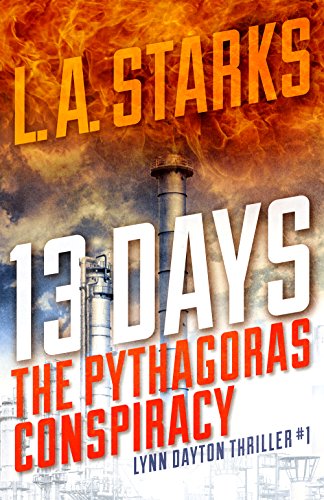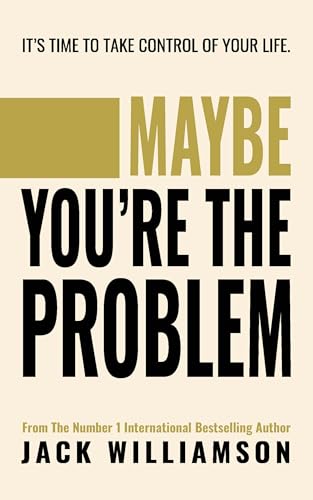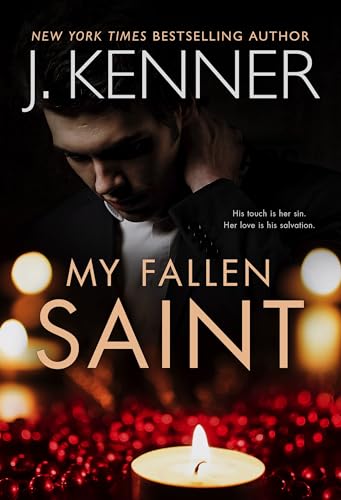In the late nineties, a bad cop killed a good woman and DC Homicide detective Marty Singer got to watch as the murderer walked out of the courtroom a free man.
Twelve years later, the victim’s daughter comes to Marty begging for help: the killer is stalking her now.
There’s just one problem: Marty’s retired…and he’s retired because he’s battling cancer. But with a second shot at the killer–and a first chance at redemption–Marty’s just found A Reason to Live.
And here, for your reading pleasure, is our free excerpt:
i.
I’ll be leaving soon.
I’ve had time to think. So much time. I was lost for most of it. Scared that I didn’t have purpose, not knowing what to do with the anger and the energy and the life that’s left to me.
But I know now. I know how to put my life back together. What it will take. The sacrifices, the actions. I think you know, too.
It’s what’s kept me alive, you know. Not your interventions. Protecting the body is just half the equation. The spirit has to have a reason to go on, too. And now I have mine.
Please. Don’t try to stop me. I need to do this.
Chapter One
“Detective Singer?”
“Not any more,” I said without thinking–and regretted it. The words stuck in my mouth after the sound was gone, rolling around like stones. Hard. Unwelcome. Bitter. I couldn’t spit them out and couldn’t swallow them.
I was killing time at a coffee shop, slouched in an overstuffed chair that had been beaten into submission years earlier. The café–I don’t know the name, Middle Grounds or Mean Bean or something precious–was a grungy, brown stain of a place flanked by a failing Cajun restaurant on one side and a check-cashing store on the other. A crowd of Hispanic guys hung around out front looking simultaneously aimless and expectant, hoping their next job was about to pull up to the curb.
I looked up from my cup and stared at the girl who’d called me by name. She was slim, with delicate brown hair worn past the shoulders and intense, dark eyes set in a face so pale Poe would’ve written stories about it. She wore black tights and a long tunic the color of beach sand, with only a ragged jean jacket to guard against the bite of early December. Her arms hugged two books to her chest and she toted a massive black backpack so heavy it had her hunched over like a miner.
My answer hung in the air and the silence stretched thin. The girl hesitated, floundering.
I let her. I was in a bad mood. A meaningless Thanksgiving was a week past and all morning I’d looked for something productive to do while my day dragged itself across the floor of my life. When the productivity failed to materialize and my thoughts started to crowd in, I’d come to the coffee shop to forget, not remember. And I’d almost done it, my mind gone gloriously blank until this girl had brought my thoughts tumbling around me like a mid-air collision. She opened her mouth to explain, maybe, or apologize. Her face was bright and full of enthusiasm. Energy and purpose radiated from her, wearying me. I waited to hear whatever it was she thought was important enough to reel me in from daydream land.
She never got to it. A shout from the street–a single, loud cry of frustration, rage, and raw emotion–shut her down and froze every person in the café. Cups stopped halfway to mouths, heads cocked like hunting dogs’. Anything the girl might’ve said–anything anyone was saying–took a backseat to that sound.
More shouts from the street swelled to envelop the first one and I found myself at the window with everyone else, the girl forgotten, peering through the glass, looking over shoulders, drawn to the potential of violence or drama. I wasn’t alone. People reading Sartre and sipping no-foam lattes a second before now jostled each other, all asking “What’s happening?”
What’s happening was unclear. The shout had come from the crowd of guys in front of the check-cashing store. They were dressed in the ubiquitous outfit of local Salvadoran or Guatemalan day laborers: tattered baseball caps, paint-spattered jeans, ripped sweatshirts. Two of the six were shouting at each other, their hands stabbing the air as they spoke, their jaws thrust forward. The body language didn’t look good and I was on my way outside–forgetting that this wasn’t my job anymore–when I heard someone from inside the café yell, “Holy shit!”
I was late. By the time I’d pushed the door open, the shorter one–stained gray sweatshirt, shoulders like a running back–had pulled a knife and was swinging at the other guy, his arm whipping back and forth. On the third arc, he connected, cutting the other guy open like he’d been unzipped from hip to belly button. A scream, high and long , split the air and the ring of onlookers melted away. The man who’d been cut glanced down at his own body with a look of disbelief, then staggered down the street, bouncing off parked cars and telephone poles, his arms hugging his stomach.
I kept my attention on the short guy who’d done the slicing. A wicked-looking linoleum knife–needle-like point, a forward curve, teeth at the base–dangled from his hand. His eyes were wide, the whites very white, the irises a bottomless dark brown. He hissed something in Spanish and waved the knife around like a conductor’s baton. Common sense told me to run back into the coffee shop. Instead, I sidled closer, talking low and slow in terrible Spanish. I don’t even know what I was saying to him. I was trying to ask him to calm down and give me the knife, but he erupted into tears the third time I asked, then came at me with wild, full-arm sweeps. The point of the knife winked in the flat December sun. It took no imagination to see it hooking into my gut and cutting clean through, making my other problems seem like small beans.
A trio of desperate twists got me out of range of one, two, three swipes, then I stepped forward, slipping inside his reach. He tried a quick backhanded slash, but I was too close for him to get any muscle behind it. With my chest to his back, I snaked my arm inside his elbow like I wanted to square-dance, then grabbed a handful of sweatshirt between his shoulder blades. With my other hand, I snatched at his free arm. Not a bad move, and the improvised armlock had neutralized the knife, but it wasn’t going to last long. Teeth gnashed near my ear as he tried to bite me and when he started to flex those shoulders, my grip started to go, fast.
I didn’t wait to see where that was going. I heaved one way, twisted my hips the other, and put him on the ground with an ankle sweep. Desperation made me follow through harder than I meant to and–without a hand to stop his fall–the guy’s forehead hit the sidewalk with the sound of a watermelon dropped on a kitchen floor. His grip on the knife went slack, just like the rest of him.
Our scrap was over in seconds. Which was a good thing, since I wasn’t in much better shape than the guy with the knife. My bit of pseudo-judo had taken me to the ground, too, and I laid there next to him, arms still tangled with his, my chest heaving. I was dizzy and would’ve fallen down if I hadn’t already been lying on my back. My breath rasped like an old steam engine trying to take a hill and my elbow throbbed from where I’d banged it on the concrete. The bricks were cold beneath me. Clouds passed across the sky. Sirens threaded the air in the distance.
And the sound of footsteps scuffed close. I turned my head, hoping it wasn’t one of the guy’s compadres coming to get in a free lick while I was down. But the face that bent over me belonged to the girl from the coffee shop. I seemed to remember she’d wanted to talk to me about a million years ago. Her hair swung forward as she knelt down and she reflexively tucked it behind one ear, only to have it fall back again. Her eyes were dark with worry.
“Mr. Singer?” she asked. “Are you…are you okay?”
“I’m fine,” I said from the ground. I closed my eyes. The sirens that had sounded distant a second before now closed in, wailing like a demented wolf pack on the run. “I just wish I was still getting paid to do this.”
. . .
It took me an hour to clear things up with the Arlington PD. It would’ve taken longer, but a dozen people had watched the whole thing from the safety of the coffee shop and vouched that my little dance might’ve saved someone’s life. Nice of them to say it, but I shrugged off the accolades when I found out that the guy with the knife was an illegal immigrant from southern Mexico who’d learned this morning he was being deported back to Juarez. He’d drunk everything in his pocket, then gone off the deep end at something his amigos had said to him. The guy he’d cut had a fifty-fifty chance of making it. No winners here.
I gave my statement to the cops, the ambulances left, and the crowd faded away. A busboy came out from the Cajun restaurant and threw a bucket of soapy water on the blood from the first knife-fight, creating a rust-colored puddle that pushed its way down the sidewalk. I watched it for a moment, then turned and headed back towards the coffee shop when I saw the jean-jacket girl standing to one side of the café door, looking uncomfortable. She’d waited through the entire escapade. Whatever it was she wanted to talk about must be important. She took a step forward, intercepting me as I reached the door.
“Mr. Singer, I’m really sorry to bother you,” she said. “I know you’re probably not in any shape to talk right now–”
“I can talk,” I said, barely slowing down. “I might not want to.”
She hesitated at my tone, then stuck her hand out. “Maybe we can start over. I’m Amanda Lane.”
I stopped, shook, and waited for her to continue. When she didn’t, I said, “Okay, Amanda Lane. What can I do for you?”
She looked stricken. “You don’t–God, I’m sorry. I thought you’d remember right away. I’m Brenda Lane’s daughter. You worked on my mom’s case. Back in ‘96?”
“Oh. Oh,” I said, straightening. My crabbiness dribbled away and I felt a flush creep up my neck. “What I can do for you, Ms. Lane? I’m not with the department anymore.”
“It’s just Amanda, Mr. Singer. My mom was Ms. Lane.”
“All right, Amanda.”
“I know you retired recently,” she said. “I called the DC police and talked to someone in your squad. I mean, old squad. They told me you’d probably be here.”
“You just called the MPDC and asked for me?” I said, surprised.
“No, I…I kept the card you gave me. That night. Your number didn’t work, but it went over to someone else’s extension.”
“Jesus,” I said. “You held on to that thing for twelve years?”
Her smile came back. “It’s like a charm. The night you gave it to me, I put it in this little purse with a plastic shield and never took it out. Saved it from the wash more than once.”
“I’m flattered,” I said, then waited.
“Well,” she said, faltering. “I know this is weird and I know you’re not with the police anymore, but you seemed to be the only one I could call right now. The only one who might understand.”
“Understand what?”
“I don’t know if you’re the right person, but I…” She trailed off.
My patience started to lift around the edges. “Look, Amanda, you came this far. You might as well tell me something.”
Words tumbled out of her like kid’s blocks from a box. “There hasn’t been a crime, so I can’t go to the police. In fact, nothing’s actually happened, so there’s nothing to even report, but my mom took too long and I’m afraid if I wait and see, then that’s the dumbest thing I could possibly do. I don’t want to end up as a story in the newspaper, I–”
“Hold on,” I said. In just a few sentences, her voice had taken off, getting loud, rushed, and scared. “Start at the beginning. Keep it simple. Are you in danger?”
She swallowed. “Not right now.”
“You said now. You think you will be, soon?”
“Yes.”
“From someone you know or a stranger?”
“Both,” Amanda said.
“What does that mean?”
“It’s Michael. Michael Wheeler, the man who killed my mom. He’s back. And I think he’s back for me.”
Chapter Two
“Let’s take a walk,” I said.
We left the coffee shop and headed down Wilson Boulevard past the new developments that had sucked the soul out of the neighborhood and towards the older homes–the ones with lawns and shutters and chimneys–that kept the community alive, even if it was on life support. It was cold. No snow had fallen yet but a crisp, white sun gave the impression that it was warmer than it was. I tucked my hands in my jacket and turtled my head into the collar.
I stole a glance at Amanda as we walked. She was taller than I’d first thought, a willowy five-nine or ten. She tucked a lock of hair behind an ear as she walked, matching me stride for stride. “Thanks for agreeing to talk, Mr. Singer.”
I waved a hand. “Just Marty. Mr. Singer makes me sound like a high school principal.”
“Thanks, Marty,” she said, and looked sideways at me. A shy smile slipped out.
“What?”
“You haven’t changed much at all,” she said. “Same black hair, same green eyes. I was afraid I’d be looking for an old guy with a gut and a comb-over.”
“I’m glad I pass.”
She kept up the appraisal. “You look tired, though. I thought retirement was supposed to be good for you.”
Just like that, an iron band slipped around my heart and squeezed. “I don’t want to talk about it.”
The mask of the self-assured young woman fell away and, like the very first time I’d seen her, the face of a frightened girl peered back at me. “I’m sorry. I thought maybe it was a good thing, I–”
I grimaced. My voice had been raw, harsh. “Look, don’t worry about it. Let’s focus on you.”
She smiled again, unsure. “All right.”
We walked, letting our steps swallow the awkwardness. “So,” I said after a second. “Michael Wheeler.”
She nodded.
“That might be the first mistake,” I said. “Assuming it’s him. Let’s start with what’s got you worried and work towards a conclusion, instead of starting with the person first.”
“The what and the who are linked,” she said. “That’s what’s got me scared.”
I didn’t say anything. She took a deep breath.
“I guess you have to understand a few things to see the whole thing clearly. You may notice I call him Michael. Not Wheeler, not ‘that guy’ or ‘the killer’ or anything like that.”
“I noticed.”
“And you remember my mom’s case?”
I nodded. I’d blanked on her name at first–it had been twelve years–but I could remember all my cases if given enough time. And I would’ve remembered the Lane murder regardless. It’s kind of tough to forget a homicide involving a cop on your own police force.
“Back…then, before my mom was killed, Michael would come by the house, all the time. I mean, constantly. That’s what creeped Mom out so much. It was stalking before anyone even used the word. But what made it worse is that it all started out so nice. Oh,” she said with a pained expression. “You already know all of this.”
“Act like I don’t,” I said. “Tell me how you remember it.”
She paused, gathering her thoughts. “My mom and I lived alone. Dad was gone, killed in the Gulf. She hadn’t started dating again and was working hard, so it was just the two of us. One night, before anything bad had actually happened, we heard a crash downstairs. We found out later it was the cat knocking things over, but we were terrified. I was scared like a little kid is scared, but the first thought in my mom’s head was that she was a single woman with a twelve year old in a wealthy neighborhood. She called the police.”
A woman with a small white dog walked towards us, then the dog abruptly stopped and squatted. We all pretended that he wasn’t doing what he was doing. The dog looked embarrassed. “And Wheeler showed up.”
“In a heartbeat. Later, when he started acting strange, Mom thought he might’ve made the noise himself that first night. He arrived so quickly, like he was sitting right around the corner. I don’t think that was the case, but pretty soon we didn’t need to dream up excuses for being scared of him.”
“That was later, though,” I said. “At first, he was the knight in shining armor.”
“He was so nice, so…God, I hate to say it. I understand the concept, but…I despise the thought emotionally. It doesn’t make me weak, but he was so–”
“Manly?” I offered.
“Yes,” she said, scrubbing her face with a hand. “In the right way. I mean, I barely remembered my father. My mom was all I knew. I was a kid. The only males I ever saw were boys who grabbed themselves and the principal at school who smelled bad and here’s this policeman, this big, hunky guy with a badge and a gun and a mustache…”
“I remember the mustache.”
“I fell in love with him and maybe Mom did, too. She was lonely and working hard. Trying to maintain appearances and provide for me. Too busy to meet anyone, too tired to go out and try. Then chance dropped a man at our door. It’s not a complicated scenario.”
“And he picked up on that. Or at least tried to take advantage of it.”
“No doubt.”
“Was she sleeping with him?”
Amanda hesitated. “No.”
I didn’t say anything.
“I’m not deluding myself, Marty. I think it would’ve come to that, sure. But Michael turned weird too fast. The first few visits were sweet, like he was our guardian angel, you know? Then he started coming around three or four times a week.”
I closed my eyes, trying to remember the details. “I looked at the complaints. I thought your mom reported him right away.”
She shook her head. “My mom told the cops that she’d asked him to leave the second or third time he came around, but she hadn’t. She said it after the fact to reinforce the complaint. He must’ve shown up a dozen times before she called it in.”
“How long before your mom told him to leave the two of you alone?”
“A month, maybe? Then a week or two more before she made a complaint.”
“Why wait?”
“She wasn’t sure what to do. I mean, you report a cop to the cops and what happens? If you’re lucky, they blow it off. If you’re not, he hears about it and takes it out on you, right? But a friend convinced her that filing a complaint was what she had to do.”
“So he had six weeks around you and your mom and your house before anyone even thought of slapping his hand.”
“Yes.”
“He ever come by when it was just you?”
“Yes.”
“Alone?”
“His partner was with him most of the time, but sometimes he came by himself.”
“Who was his partner?”
She thought about it. “You know, I can barely recall. A real tall guy. He’d always stay with the car, leaning against the door.” She shook her head. “That’s it. I only ever paid attention to Michael.”
A December breeze kicked up and slipped an icy hand inside my collar. I hunched my shoulders and shoved my fists deeper into my pockets. “It was my case, after all, so I already know, or think I know, but I have to ask.”
“He didn’t molest me.”
“And the next question is?”
“Yes, I’m sure. And, no, I’m not suppressing. I’ve been in therapy since I was twelve, Marty. It would’ve come out. All I remember was Michael being kind, being good. He made me a local celebrity with the other kids, coming to the house in his uniform, or bringing other cops around to show off. There always seemed to be a police car outside our place. No, if I blocked anything out, it was later, when Mom yelled at him, telling him to stay away. I hated her for that. I wanted her to like him. In retrospect, I know he was using me to get to her, but at the time I thought she was being a bitch.”
“So how does this bring us to what’s going on now?”
She sighed. “Michael came by a lot more often than Mom knew, since she was at work all the time. After he started scaring her, she sent me straight to the Jansen’s, next door. Even the night she was…she was killed, I was at the Jansen’s. But for weeks before that he would come by after school.”
I blinked, surprised, but didn’t say anything. She continued, staring ahead but looking into the past.
“He would leave me these white flowers, tiny things. I would find them on the porch or stuck in the front gate. I thought they were roses. What did I know? They were just carnations. He probably bought them at a grocery store or something, ten for a dollar.”
“What did you do with them?”
“I was careful to hide or trash most of them, but I kept one or two in my room. Mom found them and asked me where they’d come from, but I was embarrassed. I lied and told her they were from a boy at school. She thought it was cute.”
“What about after your mom reported him?”
She made a face. “He came by a few times before Mom got really paranoid, then I didn’t see him for…well, never. But even after she chased him off, I’d find flowers on the back porch or one in the basket of my bike. He got sneaky and would spread the petals on the sidewalk. The worst was when I found one on my pillow, a few days before…before it happened.”
Even twelve years later, I felt sick. Brenda Lane’s complaints should’ve been enough to save her life. They hadn’t because they’d been dismissed with a shrug and a so what? But if you add obsessive pedophiliac tendencies to Wheeler’s profile, somebody at MPDC would’ve paid attention. The hammer would’ve been dropped on him, hard. Maybe Brenda Lane would be alive. If anyone had known about it. My blood pressure spiked. “Why the hell didn’t you tell someone?”
“I was twelve years old,” she said, her anger flaring to match mine. “I barely knew what the hell happened the night my mom was shot. I was in Child Services for two days before anyone even told me she was dead. And I still didn’t believe it was Michael, not even after he was arrested. It took me a long time to accept that and what happened at the trial didn’t help.”
I rubbed a hand over my jaw. “Sorry. It’s just a hell of a thing to miss when you’re trying to nail a guy for murder. And he walks.”
We were both quiet. I stared down at the sidewalk under my feet. I counted five cracks before I said, “That fills in some gaps but doesn’t change the past. What’s going on now?”
She stopped abruptly and dropped her backpack to the ground. She unzipped a small pocket, fished around, and removed a Ziploc bag, Then, from the plastic bag, she pulled out exactly what I didn’t want to see.
A small white carnation.
Chapter Three
“I found it in front of my door two nights ago.”
“Couldn’t be an accident? Roommate, boyfriend, secret admirer?”
She shook her head. “No roommates. Too long since the last boyfriend. And it’s an odd gift for a secret admirer, wouldn’t you say?”
“Where do you work?”
“I’m a graduate student at George Washington University. Women’s Studies.”
I looked at her. “Students, rival grads, angry professors?”
“How would they know? What significance does it have if it’s not from Michael?”
I took the flower from her and twirled it by the stem. A few petals fell off, littering the ground. It was a shoddy way to treat evidence, but the thing had been squashed in her backpack for two nights, destroying any integrity it might’ve had. Oh, and I wasn’t a cop anymore. “So,” I said, handing it back. “Why now?”
“I know. I asked myself, why should he come looking for me? It sounds stupid when I say it out loud.”
“No, the why isn’t stupid,” I said. “There could be a hundred reasons why. The question is why now? Where’s he been? And wherever that is, what’s happened to trigger contact after so many years?”
“I did some digging around,” she said. “You know, the kind of things you can do on the web.”
“Sure,” I said, like I knew. “What’d you find?”
“Nothing,” she said. She hauled her backpack over a shoulder and we started walking again. We’d covered some serious ground and I was starting to feel it. “Not a damn thing. It’s as if Michael was locked up for a decade, then walked out and decided to find me.”
I grimaced and said, “We both know that didn’t happen. The being locked-up part, I mean.”
“I know. But it really is as if he vanished.”
“It’s not that hard to disappear,” I said. “Especially for an ex-cop who knows the ropes. And, especially–no offense–to someone not trained to find people.”
“I didn’t just Google him,” she said. “I’ve got friends at the university that can look into some sophisticated stuff. Not NSA-level, sure, but access to credit reports, arrest records, job applications, stuff like that.”
That got my attention. “Really?”
“GW has programs for journalists, law enforcement officers, lawyers, poli-sci analysts, most of whom intern at government agencies or high-powered law firms. They’ve got juice.”
I snorted. “Juice?”
A blush started under her chin. “I heard it on TV.”
“Don’t worry about it,” I said. “What did you find?”
“Everything I got was from the initial search. There was big press about my mom’s murder when it happened, then a resurgence when Michael got off, then nothing. It became old news, fast. It was the Wild West in the mayor’s office. He was making enough headlines to bump anybody off the front page.”
“Tell me about it. I worked for the guy. Then what?”
“Then nothing,” she said. “There were some follow-up articles about him moving out of the city, but they never said where he went. After that, it’s as if he ceased to exist.”
“We should be so lucky,” I said. My breath steamed in the air and the sky was getting gray. “All right, we’ve got a couple possibilities. One, Wheeler’s lived a quiet life raising pigs in Idaho and one day decides twelve years later is as good a time as any to risk jail time by coming back and throwing carnations at you.”
“Or, he’s wanted to stalk me this whole time, but been stuck somewhere else for twelve years.”
“Like where?” I asked.
“I don’t know. Overseas? The military?”
A bus passed us, drowning out conversation. Bored looking passengers stared out of the windows. I waited until it got to the end of the street. “First one, no. You can get a plane any day of the week from most countries and it didn’t take him twelve years to save money for a flight to DC. Second one, no. Unless we’re talking the French Foreign Legion, soldiers still get leave, still get time off. It isn’t prison, even if it feels like it.”
“You said there were a couple of possibilities.”
“Two. It’s someone else entirely.”
“It has to be Michael. I never told anyone about the flowers,” she said. “You didn’t even know.”
“Sure, you never told anyone. But what if he did? He was such a smug prick, it’s hard to believe he didn’t confide in a buddy, a girlfriend, a coworker. This thing with the flowers didn’t surface during the investigation or trial, so he knew we never found out about them. It would’ve been a tiny victory for him. Like he pulled one over on all of us. Guys like him would brag about something like that.”
Her shoulders slumped. “So where does that leave me? It might be Michael or it might not. My life might be in danger or it might be a prank by some copycat sicko that wants to torture me about my mom’s death.”
I hesitated, then reached out and patted her shoulder. I’m not good at comforting people, but I’ve seen it done before. “First things first. You still at your apartment?”
She shook her head. “No. I freaked out as soon as I saw the flower. I packed a bag and spent the night at a friend’s place.”
“You’ve been there since?” I asked.
“Yes.”
“All right, find another friend. Don’t go there directly. Catch the Metro, grab a cab, whatever. Even better, switch a couple times. Don’t just walk there. All right?”
She looked unhappy, but nodded.
“Next, can you take a break from classes?”
“Not really. And I have office hours, too.”
I shook my head. “Show up for class late. Cancel a few, if you can. Don’t move around alone, don’t go anywhere after dark by yourself. Don’t do office hours. Ask people to call if they need you. Posting the hours you’ll actually be somewhere is, well, putting out a sign telling him where you’re going to be.”
Amanda was pale, but her narrow jaw jutted forward. “I can’t stop everything I’m doing. I won’t stop living. I refused to do that after Mom died and I’m not going to do it now.”
I held up a hand. “You’re not. We’re just going to take some precautions.”
She paused, then said, “We?”
“We. For now. Retirement is turning out to be pretty lousy and this gives me an excuse to leave the house. There are some things I can do, folks I can call. This is no accident. Someone is doing it. Therefore, we can make them stop.” I smiled. “I still have a little juice.”
“I…can’t pay you much–” she began.
I stopped her. “Let’s let my pension cover this. I think we owe you one. The least I can do is ask a couple questions, give you some advice. If you need me to break somebody’s arm, then we’ll talk price.”
“I hope your rates are low,” she said, her smile tentative. “What’s your first move?”
“We’ve narrowed it down to Michael Wheeler or the rest of humanity,” I said. “So let’s start with Wheeler.”
ii.
There were points in life, he’d come to realize, that offered moments of absolute choice. The proverbial fork in the road. Either you did this thing or you didn’t. Life would be this way…or that way. Compressed intervals of time that, before they turned up, meant you lived and acted and suffered in one way and–after them?–in a completely different way. If you were lucky enough to survive, you popped out the other side utterly changed. With a different set of values. And a different set of goals.
He’d had his moment already. It had taken him time to realize that it had even occurred because he hadn’t suffered right away. He’d paid later–fuck, yes, he’d been put through the wringer–but at the time, he thought he’d ducked and dodged his way out of the consequences. In the end, fate had caught up with him and he’d learned the hard way what value and power those moments of change possessed.
But who said you couldn’t have another moment? To make one for yourself? That you couldn’t grab the edges of your destiny and pinch them when you wanted to, bring the moments of your life together and force the world to give you another chance? To undo the worst that had happened and return to the beginning.
Maybe, given enough time, it would simply happen on its own. But he wasn’t willing to wait to find out if the universe was ready to open a door for him. He was going to grab his past, pull it into the present, and carve out a new future.
Chapter Four
I told Amanda to call campus security and fill them in on her situation, then made her promise to call me on the nines–once in the morning, once at night–to let me know she was okay. Like my other suggestions for her safety, they made her bristle, but I asked her if she wanted my help or not and that ended the protest. She took off and I headed home at a brisk walk, trying not to think about how little it took to put the jump back in my step these days. Back in the coffee shop, I’d been ready to tell Amanda to take a hike. Now, for the first time in weeks, I was looking forward to going home and doing something meaningful.
My slice of heaven is a three-bedroom Cape Cod with a decent-sized front porch, a backyard I can mow in thirty-two minutes, and neighbors to either side that change every few months. The furniture is decent and the decorations minimal. I’m cheap and unimaginative and generally buy things as Ikea sales dictate. It’s five blocks from coffee shops, stores, and restaurants and not far from the major highways in the area, though given the Washington DC area’s ubiquitous traffic snarl, that just means you get caught in a line of cars faster and closer to home.
When I got home, I headed straight for the kitchen, cracked open a can of food for my cat Pierre, and stepped back. He’s large and has a temper. The smell coming from the food bowl was enough to put off even a healthy adult human, but he attacked it like it was his last meal, grunting and yowling while he ate.
“Easy, killer,” I said. Pierre looked up at me like I was next. When he’d licked the last morsel out of the bowl, he ran his tongue around his teeth, then bounded out the swinging inside-outside door to commit atrocities on the local squirrel population.
Holding my breath, I rinsed his bowl out, then headed upstairs to my office. My house, built in the slap-dash optimism of the post-war forties, was small and probably meant to shelter a family of four, all of them apparently of smaller than average proportions and not put off by sharing bedroom or bathroom space. My office had been the kids’ bedroom, with the slanted ceiling of the dormer interrupted by a solitary window overlooking the porch roof. I have to be careful I don’t stand up too fast or I’ll brain myself on the ceiling.
The room is austere. No computer. Just a typewriter, a stack of legal pads, and a Mason jar full of black pens sitting on a dented steel desk I rescued from a salvage pile. The desk is gunship gray, with a sticky vinyl bumper going around the lip of a slab top that would’ve looked more at home in a coroner’s lab. Completing the décor is a battered office chair I filched from MPDC HQ and a filing cabinet. Five drawers are devoted to case files, one to personal items. Making it, I suppose, emblematic of my life.
We weren’t supposed to do it, but I’d always made personal copies of all my work files when I was on the force. I never regretted it, at least not from a professional standpoint. Of all the cases I’d broken open in my career, I’d come up with the answers for half of them sitting in this office at three in the morning, leaning back in my scuzzy chair, my hands laced behind my head, staring at the ceiling.
After I’d retired, I hadn’t been able to bring myself to throw the files out. I didn’t know when I was going to do it, I just felt each day that today wasn’t the right time. And now I was glad I hadn’t been able to cross that bridge. I rummaged through the drawers, looking for the right folder. Since I filed cases under the victim’s name, not the perpetrator’s, Wheeler’s well-thumbed file was in the fourth drawer under L for Lane, Brenda. The case file was an inch thick. Not the best sign. Most of my cases took two hands to pick up.
I threw the file on the desk and plopped down in the chair. A wave of irritation and depression hit me, catching me off guard. Old feelings of failure and lost opportunity welled up like the case was twelve hours, not years, old. I sat there and rolled the feelings around like they were flavors, savoring and tasting them again after the long hiatus. There was a lot of bitter and very little sweet. Things hadn’t gone the way I thought they would, or should. Maybe this was my chance to make a difference.
Or maybe nothing could change what had happened.
I tamped down the surge of emotions and started flipping pages on the Lane case. The way I remembered it.
Continued….

















